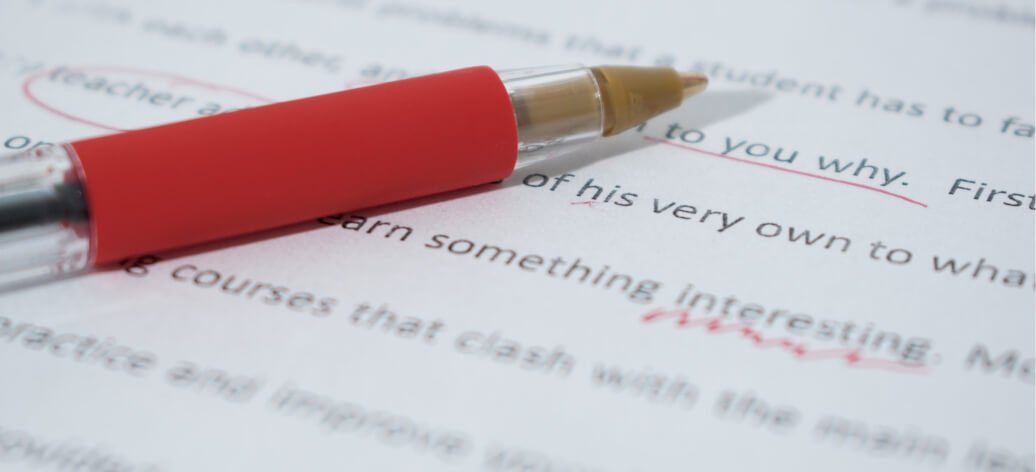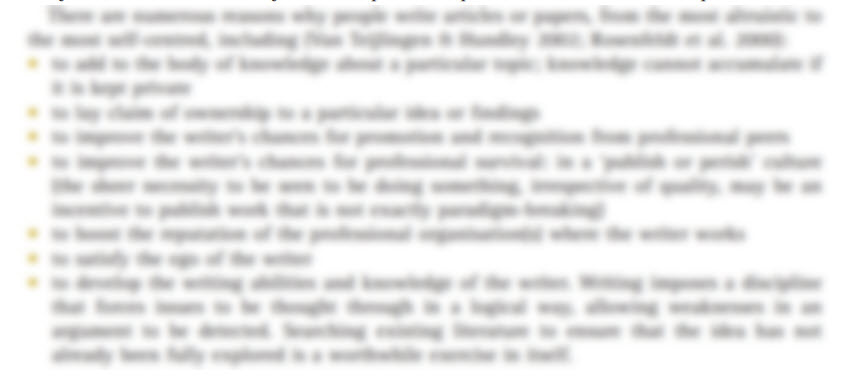For most people, learning a second language is a struggle, let alone learning how to be a proficient science writer in that language. The following tips and suggestions will help the struggling ESL science writer both identify and tackle common writing obstacles.
1. Don’t aim to learn all the rules of grammar before you start writing
It can take a long time to be proficient in all the English rules of grammar. Even many experienced writers with English as their first language are not proficient at English grammar rules, relying on their innate knowledge of the language when writing. Instead of thinking you need to learn every English grammar rule, concentrate upon the most common grammar errors when learning English as a second language. In a recent study, the most common written grammar errors by ESL tertiary students were found to be Subject – Verb Agreement (SVA) and Verb Tense (Singh et al. 2017).
2. Avoid trying to make your English grammatically-perfect in your early drafts
While the final version of your document should be grammatically correct, don’t worry about having perfect grammar before you start or when preparing early drafts. In your first draft, concentrate upon getting your ideas down and ensure you are addressing a clearly defined aim. You can fix up your grammar as you edit and rework your later drafts.
3. Try writing your first draft in your first language
If writing in English is a significant obstacle to getting your thoughts down, try writing your first draft in your first language to allow you to first concentrate upon writing about your topic clearly. Once you are satisfied with the progress of your document, you can then translate your writing into English and then seek assistance from a science editor to help you correct your grammar.
4. Continue with English conversation classes
Science writers who struggle to improve their written English, are also often not yet proficient in spoken English. Continuing with weekly or monthly English conversation classes will not only improve your written English, but will allow you to pick up commonly-used English vocabulary and terminology.
5. Ask a friend or colleague to regularly give you feedback on your spoken English
Normally, friends or colleagues will not correct your spoken English and unless you are continuing your conversation classes, it may take you a long time to learn where you need to improve. Try asking a friend or colleague to regularly give you feedback on your spoken English.
6. Ask a friend or colleague to give you feedback on late drafts of your document
In addition to any editing and feedback you might receive from co-authors, colleagues or managers, try asking a friend or colleague to give you feedback, specifically on your English grammar. This person need not be an expert in English grammar but be able to point out any obvious anomalies in your writing. Having someone focus on giving you feedback on your English will allow other colleagues to focus on giving you feedback on the scientific aspects of your work. In return, you could also offer to give feedback on your colleagues’ writing. This will also help you to improve your writing as critiquing the work of other writers allows you to notice areas of improvement you might not see in your own work.
7. Use online grammar exercises to improve your grammar
Grammar textbooks are excellent as reference texts to look up individual rules, while online grammar exercises are a good way to learn how to correct grammar using real examples. Online grammar exercises immediately provide both corrections and explanations.
8. Avoid online forums to learn about grammar rules
Grammar queries that are posted in online forums (for example Quora) are invariably answered by both experts and non-experts and some answers can be incorrect. This makes it difficult to decide which is the correct answer to follow. Also, there are some grammar rules that are more difficult to follow than others, especially if there are many exceptions to the rule; for example, the spelling rule ‘i’ before ‘e’ except after ‘c’. Only refer to reputable grammar websites that are specifically designed for education.
9. Be aware that not everyone agrees about what is correct English grammar
Be aware that not everyone agrees about what is correct English grammar and what is acceptable vocabulary. For example, some experts advise never to use contractions (for example “We’re” instead of “We are”) in scholarly or formal writing, yet contractions do not change the accuracy of the message and are argued to make reading more enjoyable.
Choose 3-5 grammar references that are reputable and written by trained, professional experts and consistently follow their advice. Also aim to follow the standard references and style guides for your discipline and institution.
10. Hire an editor that can explain grammar rules
If appropriate for your circumstances and if you have the resources, hire an editor proficient at explaining grammar and ask them to give you regular feedback on your writing.
© Dr Marina Hurley 2019 www.writingclearscience.com.au
Any suggestions or comments please email info@writingclearscience.com.au
FURTHER READING
- 11 common mistakes when writing an abstract
- The essentials of science writing: identify your target audience
- Co-authors should define their roles and responsibilities before they start writing
- The difference between a writing rule and a good idea
- When to cite and when not to
- Back to basics: science knowledge is gained while information is produced
- How to build and maintain confidence as a writer
- If science was perfect, it wouldn’t be science
- What is science writing?
- 8 steps to writing your first draft
- Two ways to be an inefficient writer
- Work-procrastination: important stuff that keeps us from writing
Find out more about our new online course...
Now includes feedback on your writing Learn more...
SUBSCRIBE to the Writing Clear Science Newsletter
to keep informed about our latest blogs, webinars and writing courses.





